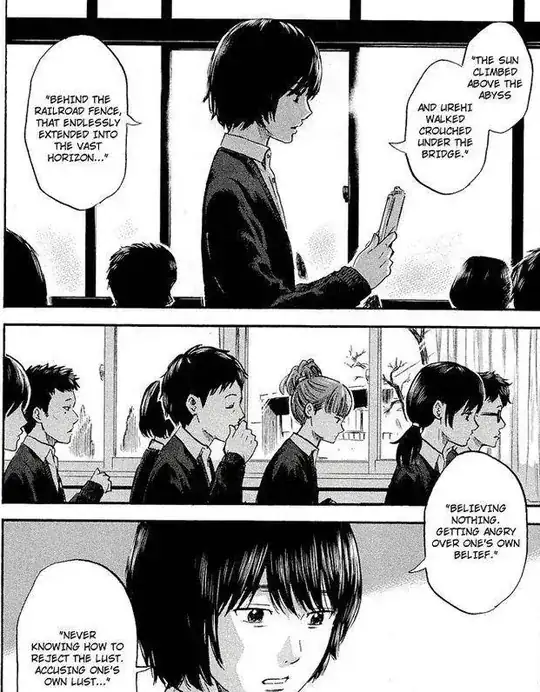In chapter 34, Kasuga was asked to read aloud a page from a book in class. The translation I'm reading gives the lines as:
The sun climbed above the abyss and Urehi walked crouched under the bridge. Beyond the railroad fence, that endlessly extended into the vast horizon...
Later, on the same page:
Believing nothing. Getting angry over one's own belief. Never knowing how to reject the lust. Accusing one's own lust...
(This might not be a very good translation of the original Japanese, since there are other quality issues with the translation I'm reading. I'm also not sure if the two parts go together.)
In case I'm not parsing the text correctly, here's an image of the page:

Is this from an actual book or poem, and if so, what is this text? I've tried searching the content in the first two bubbles, but Google hasn't given me anything useful.